*EXCLUSIVE * CM Showrunner Breen Frazier Speaks!
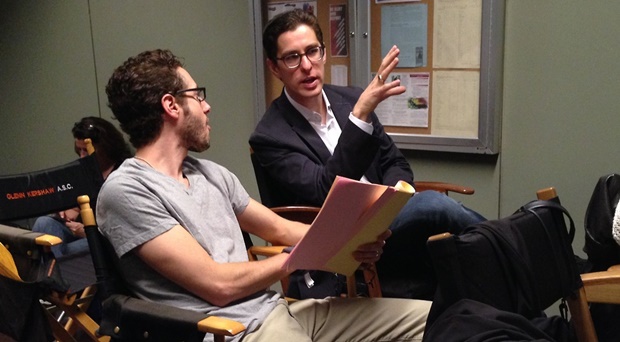 *EXCLUSIVE * CM Showrunner Breen Frazier Speaks!
*EXCLUSIVE * CM Showrunner Breen Frazier Speaks!
It’s been a while since we’ve heard from him, and we’ve long admired his writing. Classics like The Uncanny Valley, and Pleasure Is My Business populate his portfolio, as do the polarizing Zugzwang and the universally praised fan-favorite Mr. Scratch. Now Breen Frazier is sitting on top as Executive Producer for Criminal Minds, sharing showrunner duties with Erica Messer. Join us as he discusses his episodes and gives up some background about his life before CM, as well as what we can look forward to if (and when, we hope!) our show gets another season.
TJ: How are things? Are you stressed out or is it what you expected? How does it affect your writing?
BF: Things are good! I think. What have you heard?
Being an executive producer on “Criminal Minds” is like winning the showrunning lottery. If I’m not home to give my kids a bath, I’m home by bedtime. That’s unheard of, with this position. I’m the lucky beneficiary of a job that has a very long institutional memory. We know what we do well, we know what we don’t do well, we know how to produce it so that our stages always look like the police department the team goes to every week. We’ve gotten so good at this that I can trust everyone on this show knows how to do their job, and they do it efficiently, on budget and with a level of ingenuity I can’t even begin to appreciate.
In order for things to go wrong, I would have to steer the ship directly into the iceberg on purpose. And even then, there would be a long line of people, starting with Erica Messer, and continuing with Glenn Kershaw, Harry Bring, Sharon, Virgil and Bruce, all asking me, “The iceberg is right there, are you sure…?”
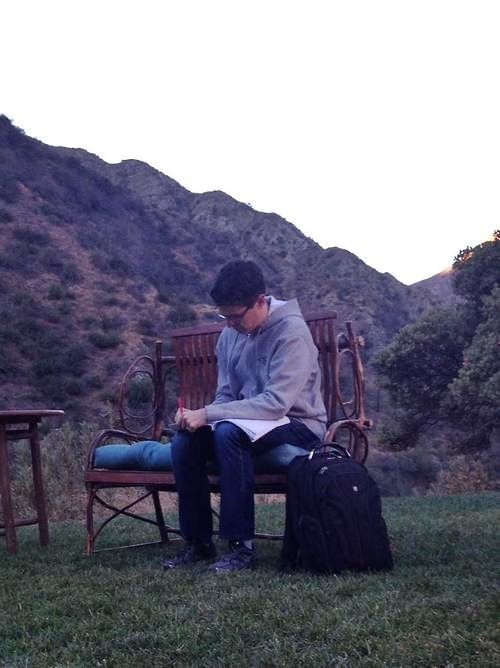
I mean, we’ve had pretty much the same writing staff for five years. We know each other about as well as we know our spouses. We know what kind of stories each writer likes, we complete each other’s sentences, sometimes we cut up each other’s food. We genuinely like each other and, because it’s case-of-the-week and not serialized, all we want to do is help each other write the best stories possible.
That having been said, yes, it has been stressful, but it’s pockets of stress as opposed to the normal daily routine. The best example this season was when I was in post-production on Episode 11 while writing the first draft of 16 and continuing to help the rest of the staff break their stories. Messer warned me at the beginning of the season that my writing time would be the first thing to go, which is true. But I’m still expected to crank out three scripts like everybody else. I find that it’s more late nights (after my kids’ bedtime and bath, natch) or early mornings, but that’s the job. Whenever I think about complaining, I remember Messer’s doing this times two, with Beyond Borders.
TJ: What are the main differences in your role as showrunner, versus your duties as writer/producer?
BF: Being a showrunner means paying attention to the whole arc of the season more than I’ve ever had to before. The biggest surprise was the budget. I know how to rewrite a script to make it cheaper, or how to argue that, say, “Mr. Scratch” is worth paying a little more for. But now I’m aware of every episode, whether it’s in the black or the red, and how we’re doing for the season. Fortunately, this staff is very responsible, and if we need a smaller-scaled episode, someone will write one, and we keep Harry and Glenn from having a heart attack that week.
But there’s also the issue of paying closer attention to what every writer is working on, helping them push that story boulder uphill and making sure we’re not repeating ourselves. In a weird way, it was easier working on someone else’s story when I was supervising or co-executive producer, because I could go, “Pfft, that idea sucks,” or disengage and be quiet if I was tired or grumpy. I can’t do that anymore. I mean, I never should have done that anyway. But now I really can’t do it; it sets a terrible example, it’s rude and it shreds your staff’s ego.
One final difference is unique to this season. I’ve tried to help steer the DarkNet Hitmen arc. I wanted to do a multi-part story that was different than what we’ve done before. Previous arcs were very individually specific: Hotch/Foyet, Prentiss/Doyle, JJ/Cruz/Afghanistan. What we wanted to do this season was tell a story that seemingly focused on Morgan, but quickly spread out so that every character was affected by it — Garcia when she’s identified as the Dirty Dozen, Reid in his chess match with Cat (Aubrey Plaza). The shape was completely different, but planned way, way in advance. And when I look back at everything the staff accomplished to pull this story off, I’m really happy with it.
TJ: Although we’ve known you as a writer/producer on the show for many years, you’re a bit of a mystery as a person, as I can’t say I’ve ever read much with you talking about yourself. Virgil tells us you’re from Chicago, as he is [Author’s note: Virgil clarified that Breen isn’t actually from Chicago. My bad]. Can you share a little of your upbringing, and your path to becoming a television writer and producer?
BF: I was born and raised in Nashville, Tennessee, actually, but I went to school at Northwestern, which is in Chicago. Evanston, technically, but it’s an El ride into Chicago.
When I was a three-years-old, my parents took me to see “Star Wars” and that was that. From that point on, movies and TV were all I watched, lived, breathed, ate and slept. If you’d asked my relatives when I was growing up, “What’s Breen going to do when he grows up?” they would have said, to a person, “Oh, he’s going to go out to Hollywood.”
Northwestern was the only film school that accepted me, so I went to Chicago before going to Los Angeles, and it was a good thing I did. Because as a teenager obsessed with Spielberg and Scorsese, I was certain I was going to be a director. But after I directed some of the worst student films you’ve ever seen, something inside of me said, “This isn’t for you.” I didn’t think in terms of light, color, frame composition. Whatever it was that you needed to be a good director, I just didn’t have. And I hated being on set, and not having all the answers, when everyone expects you to have all the answers. It was draining, waiting two hours to get one shot.
At the same time I was getting off the directing train, I was getting on the writing one. NU offered something called the Creative Writing for the Media program. It was a concentrated, two-year writing certificate, which is kind of like a minor. But what it really meant was that every quarter, the students wrote a new script. A short film script, a feature, a TV script, etc. It was very hard-core writing. It was awesome. And it’s where I realized, “Oh, this is what I want to do.”
So, new plan: go to Hollywood and write movies. All good. But when I got to LA, I learned what everyone who’s in love with movies learns, which is that there aren’t a lot of them. Feature assignments are a very finite resources. There’s maybe seven guys who work all the time. After that, your chances of writing a movie are about as good as winning the lottery.
But TV? Whole different ball game. Different numbers. Different metric of success. For starters, and most importantly, there’s simply more work. If a season goes six or thirteen or twenty-two episodes, and there are four or eight or twelve writers on staff, you have almost exponentially more opportunities to break in. And there’s a clear ladder to climb. You start as an assistant in a writers room, maybe you get lucky and get your shot as a staff writer and work your way up from there. And when you get to executive producer, you get the same respect that feature directors do, because the creative responsibility to oversee the whole production falls to you.
So as I was figuring this out, I was the Writers’ Production Assistant on the sitcom, “Murphy Brown.” This was 1996-1998, and it was the beginning of some amazing work being done in TV. “ER” was in its ascendancy, “Buffy the Vampire Slayer” and “The Sopranos” were about to appear on the scene, rewriting the rules of television all over again. Suddenly, TV was a much cooler place to be if you wanted to write. Once I made that decision and started writing spec scripts to get noticed, it was a much easier life. Not easy, but easier than the feature life.
TJ: You wrote for – among other shows – Roswell, Alias, and The Ghost Whisperer before coming to Criminal Minds. How was each experience unique, and what was it like writing for Jennifer Love Hewitt again on CM, when she embodied such a different character?
BF: Jennifer was the third Ghost Whisperer alum I’ve written for on “Criminal Minds.” I wrote for Camryn Manheim in the Season 9 two-part opener, and I’m writing for Aisha Tyler currently. If I can get David Conrad over here, I win some sort of prize, a decoder ring, I think.
Jennifer is just a joy as a person, which made her a joy to write for. She was a different character than Melinda on “Ghost Whisperer.” Melinda was a fundamentally positive, upbeat person. Kate Callahan had seen some dark stuff. It didn’t get her down, she was just, y’know, she’d been in it. But the saucy attitude, the eye rolls, the way she’d glance at Morgan or react to Reid, that’s not Jennifer as much as it’s Jennifer’s acting choices. But those choices were almost always right, because they always drew you in when she was onscreen and it made her a lot of fun.
And then it helped that we had a short hand. I was joking when I said the staff finishes each others’ sentences, but Jennifer and I did have that on the CM set. Whole conversations about scenes would be: “That thing…” “This thing?” “Yeah, that’s the thing. It’s a callback to the other thing.” “The thing with the thing?” “Right. That thing.” “Got it.” It’s a short hand that comes from experience and staying up together until 2AM in the freezing cold. And it just makes your job easier knowing the person saying your lines gets it.
As for the other shows, I’ve loved them all. They were all different and I learned different things for each one. “Roswell,” jeez, I was so young. I didn’t know what I was doing, and Jason Katims and Ron Moore were incredibly patient with me. Ditto JJ Abrams and the whole staff on “Alias.” I mean, I was really moronic. I made some dumb, dumb choices that probably should have gotten me fired. I turned in a 45-page outline on “Alias” once. The standard is, you know 8-10. JJ very patiently said, “I don’t think you know what your story is.” That was Season 4 and he still brought me back for Season 5.
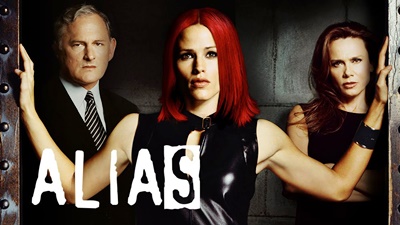
“Alias” was a blast just because the content was James Bond as a woman, and it was drawn in big, fun comic book colors. I’ve probably never had as much fun in a writers’ room as we had on “Alias.” The whole show was motivated by, “What’s something that could happen next that is just totally awesome?” You can’t keep that up forever, but when the show and the staff are firing on all cylinders, there’s nothing better.
With that as my background, the jump to “Criminal Minds” was scary because I’d never written on a procedural drama before. I didn’t know if I could do it. When I started analyzing the show — after I was hired but before showing up in the writers’ room — I was surprised by how smart it was. I didn’t know if I could keep up with this staff. If I could master profiling details and learn mystery structure. But once I saw the pattern, and the myriad ways you can play with the pattern, the show became this elegant math equation.
And there’s something profoundly satisfying about writing a good mystery. Of all the shows I’ve worked on, CM will be the one that I’ve learned the most from, the one where the accumulated skills will pay off for the rest of my career. Because who knows where TV will go in the next decade? Conventional wisdom says it will come through our internet connection, but will it be in 42-minute chunks? Or 10-minute chunks on YouTube? We’ll all find out together, but I believe there are certain templates that won’t change. Audiences will always want to laugh, they’ll want to see something they haven’t seen before, and they’ll always love a good mystery. So I can take a structure like “Entropy” and make a YouTube version of that if I need to.
TJ: If we can, I’d like to touch on a few of your classic episodes. For instance, The Uncanny Valley is, without fail, on the top of most fans ‘Best Of’ list. Do you remember what the impetus for that episode was, and how it all came together?
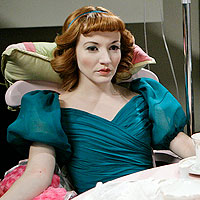
BF: If I die and they put “He wrote Uncanny Valley” on my tombstone, I’m okay with that. When I think back to that process, it’s the TV equivalent of the perfect pop song where everything just came together the way it was supposed to. Everyone who worked on it did amazing work, from Anna Foerster’s flawless direction to the make-up and the costumes and Gubler’s really layered work, showing new sides to Reid.
The impetus was Homer and Langley Collyer, who are two historical hoarders. I was fascinated by their story and tried to wrap my brain about how to get hoarding into a profile. This often takes me a while, when a research idea searches for a story. It took me about four years to work delusional parasitosis into “The Itch” and even longer to put Satanic Ritual Abuse panic into “Mr. Scratch.”
But hoarding was a brief, but intense research period. I knew it wouldn’t be hoarding directly, because most hoarders are usually mentally ill but benign. Then I read about a subset of hoarding called “collecting.” Unlike hoaders, if you try to separate them from their stuff, they can get psychotically violent. Then, right on the heels of that (the next day, I think), I read about women who have suffered the loss of an infant, so they’re prescribed life-like dolls that they carry around in a baby carriage to help them cope iwth their loss. Something about “collecting” plus “life-like dolls” merged in my head like chocolate and peanut butter, and I got this episode as a result.
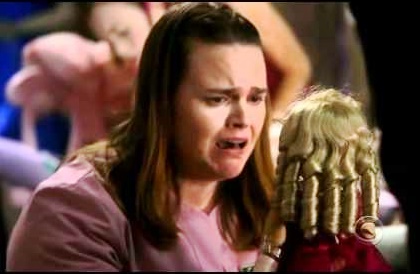
There were some things I had to find. The voice of the tragic UnSub was hard. Her abductions were pretty organized, even though her affect fought against that. I also needed that thing that made you go, “Oh, okay, that’s why she’s doing that.” It’s that combination of stressor/trigger that we always give the audience, but sometimes it can drive you crazy when you’re writing it. So, was she molested by her dad? Sure, but that’s kind of boiler plate. But… wait a second, her dad is a bad shrink and subjected her to electroconvulsive therapy to hide his crime? Shades of Rosemary West? Yes. Perfect. Haven’t done that before.
I guess it was hard work. But I don’t remember it that way because it was fun hard work.
TJ: Pleasure is My Business is a favorite Hotch episode. The way he figured her out after initially missing her in the elevator. The way he understood her position (though being fully cognizant he needed to stop her), and how he was there for her as she died. We rarely see this side of Aaron, but it’s there and nice to see when it’s explored (Like when he washed Elle’s blood of her wall, and when he was with Strauss at her end). What made him relate so much to this particular UnSub? What was the origin of the idea of Megan, with you, the writer?
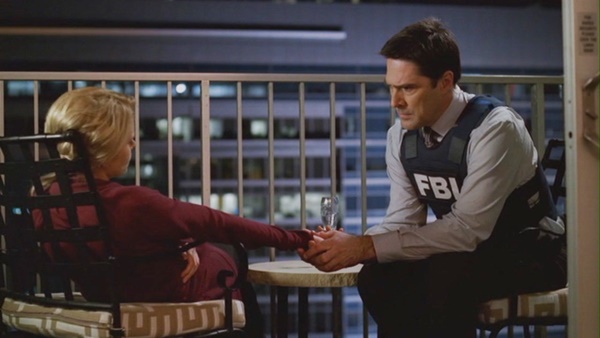
BF: We had done a lot of male UnSubs and hadn’t done many women. I really wanted to do a strong, female UnSub. Andrew Wilder pointed out to me that, unless you’re doing someone psychotic, like Aileen Wuornos, most women don’t become serial killers. They’re rarely driven by compulsion, and almost never driven by sexual compulsion the way male serial killers are. That took me down the road of high-end call girls. I wanted to take the template that the show (and, sadly, real life) had set up of prostitutes as high-risk victims. This UnSub was a woman who was wounded, but certainly didn’t see herself as a victim. There was something about the dynamic of her sexuality and anger toward her clients that felt like interesting ground to cover on the show.
And the research was F-A-S-C-I-N-A-T-I-N-G. Not just the dirty, seamy side of it, but the psychology of, how does a woman like this work with her clients? How does she set her price? How does she get in and out of hotels (which would make it easy for her to evade police detection)? I had a conversation with Sudhir Venkatesh who had done a study that involved a series of interviews with call girls, and the way they worked and lived their lives was something I felt the show could get into.
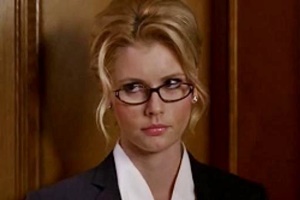
Okay, so if you have this smart, sexy femme fatale, who do you want to see her go up against? I could have had just as good as episode with Megan vs. Reid or Morgan. But Hotch was the one who was separated from Haley, and it had been a while since we touched on his personal life. He’s missing out on Jack growing up, he has no one to go home to. Megan keyed in on that immediately, as well as the fact that he was a fundamentally decent man. And Hotch keyed in on this woman as an abandoned child. He did what her father couldn’t, he stayed with her as she died.
Two things about that episode:
(1) Without Brianna Brown as Megan, there’s no episode. We had a lot of casting sessions, more than I’ve ever had on this show, trying to find the right actress. Brianna came from a commercial shoot, I think. She hadn’t read the sides so she read the Act Two scene with the New Client (who lets slip that the FBI is onto her) completely blind. Which meant that her reactions in the audtion — from “Oh no,” to “I have to take control of this” — were genuine and unrehearsed. I’ve never seen an actress just nail an audition the way she did, and she did it by reading the scene cold. It was spectacular.
(2) The end quote was “You don’t pay a prostitute for sex, you pay her to leave after.” But I couldn’t source that quote past Charlie Sheen. I did find one reference on the internet to Dashiell Hammett, but I couldn’t confirm that. So I put it in the character’s mouths (Megan: “Who said…?” Hotch: “Dashiell Hammett”) instead of having it be our usual format. By the way, the internet was wrong. Which means Hotch was wrong. Sorry, Thomas!
TJ: Out of all of your episodes, is there one that you’d like to go back and rewrite or change the way a story went? Conversely, what episode are you most proud of and why?
BF: I’d go back and kill “Compromising Positions” on the board. You can’t do swingers on CBS, it just doesn’t work. I got cocky after “Pleasure,” thinking if I can do high-end call girls, I can do swingers. But it was a non-starter. There’s one monologue from Gubler about how military bases had a lot of swinging. I think that’s probably the only decent part of that episode. It’s frustrating when you have all these talented cast and crew working on a script you know is bad.
“The Company” is a good 42-minute episode but it was an AMAZING 56-minute episode. The pacing is completely different: Morgan’s journey to find Cindy is more lived-in and agonized, the story has more twists and turns; the ending is heartbreakingly beautiful. I wish I could find a way to put the longer version on DVD.
I mentioned how proud I was of the Hitmen arc this season. “Entropy” turned out really, really well and based on the response I’m getting tonight (11:30 on the Wednesday night it aired) people really seem to like it. That was a script where I pounded out draft after draft, and couldn’t get the balance right. The story beats were always there, but the fundamental question of, “What keeps Cat from getting up and walking out once she realizes she’s boxed in?” eluded me. And it’s stupid when I look back at that story, because that’s the first question I should have resolved. But somewhere in between draft nine and ten, the idea “Let’s play a game” hit me, and with that, the dynamic between Reid and Cat began to gel.
I’ll talk about “Mr. Scratch” below, but I also love that episode.
TJ: It sometimes seems as though the studio has loosened up a bit in regards to a strict format within the show. Certain things will always be in place, but in the past few years there have been some ‘suspensions of disbelief’, especially regarding Matthew’s episodes (yay!). The fans eat it up. How do you feel about the show moving into ground previously unexplored?
BF: I think it’s the future of the show. We’ve been on for eleven years. There’s certain things that won’t change. But we have to keep taking that math equation apart and putting it back together again in different permutations if we want to get more stories. When we work harder, the cast works harder, the crew works harder, everyone gets more excited because we’re in uncharted territory. Round Table scenes and Profiles are hopefully entertaining and educational for the audience, but the truth is sometimes we go on auto-pilot when we shoot them. But Hotch gets drugged and hallucinates the team being slaughtered? Yes, please.
TJ: Mr. Scratch. Literally everyone loved this episode, it was universally lauded on every platform. It felt like a combination of best of classic Criminal Minds, combined with what we’re technically able to do now, both in storytelling and effects. The feeling in the fandom was that it would have made a great season finale. Did you have a sense that you had just nailed this one? That it was going to be so appreciated?
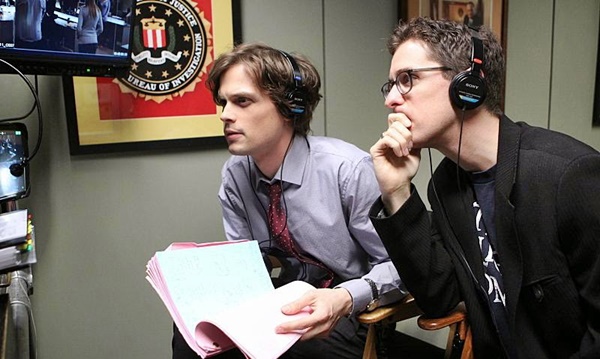
BF: This is what I knew going in: I knew Gubler would direct it beyond my wildest dreams. It was him in his wheelhouse (spooky, moody, building dread) and me in mine (bizarre idea that’s grounded just enough for you to buy it).
As I mentioned before, I’d been researching Satanic Ritual Abuse panic since Season 5. The books were horrifying in that Falsely-Accused-meets-Witch-Hunt narrative where you can’t help but go, “I see all sides.” That’s all well and good, but how is it a CM episode? Then, somewhere at the beginning of Season 10, I thought, “Wait a minute, do the math. SRA claims went from roughly the early 80’s into the early 90’s. All those kids who made claims are grown now, many are probably parents themselves. How do they feel about what happened? Do they remember anything? What about the teachers whose lives and careers they ruined? What happened to them?” That’s a great hook for an episode and we built out from there.
I wanted to save it for Gubler because it had stuff he would love. A man screaming that he didn’t kill his wife when flashbacks reveal he did? Check. Spooky giant puppet hands? Check. A grown woman talking in a little girl voice? Check. But if you look at the episode just as a story document, it spins out of control in Act Three. Wait, the UnSub (a) hacked Quantico because (b) he’s an advanced math genius who Hotch can find because (c) he has a good buddy in the NSA that we’ve never heard about in ten years? That shouldn’t work. But it does. Or, at least, it does with enough momentum to get you to the climax, which is Hotch on the floor, fighting for his sanity. And that sequence is so evocative, from Bodhi Elfman’s voice to Thomas Gibson’s startlingly vulnerable performance, that I just point to all the other people who made it work and go, “Them. They made it happen. Gubler’s vision. Greg St. John’s chiaroscuro lighting. Andre Ellington and Tom Seymour’s special effects making mini-explosions happen in the BAU. The way Thomas nails the last line of the episode, ‘This is what happened.’ It’s all them. I just get to sit at video village and giggle as we’re shooting it.”
TJ: Much has been made of the “revolving door” regarding the female team members. Fans get attached – or reject – it seems, based on indefinable quantities. As co-showrunner now, what’s your take on that? Is the departure of a character difficult in the extreme, or is there a sense of ‘Oh hey, we’ll see her again.” Does it deepen the well of stories to tell, or is there just finality and loss when someone goes?
BF: The departure depends on the character and the circumstances surrounding their presence on the show. Rachel Nichols had a target on her from the beginning because it felt like she was Paget and AJ’s replacement. I’m not sure she ever would have gotten a fair shake. Jeanne Tripplehorn I liked a lot. I wrote the episode where we met her husband, and we got to see a different side of Alex Blake. When Gubler and I asked her to get soaked in cold, cold water at the end of “Blood Relations,” she didn’t hesitate.
And Jennifer Love Hewitt made the same decision her character did: to focus on being a mom. There was no finality and loss to her exit, as much as hope for her character and happiness for Jennifer as a person.
Then you get someone like Aisha Tyler. Aisha just radiates the double threat of intelligence and humor. I mean, you sit on set with her and listen to her talk about her recent weekend trip to London, and you say to yourself, “Oh God, you’re so cool and smart and funny, I’m going to try not to spill coffee on myself aaaaaaaand I failed.” Aisha, like Paget, has an impov background which makes her the one person on set who can break everybody else up and the one who snaps right into character when the director calls action.
This doesn’t answer your question. But I don’t think the cast changes over six seasons (which every show has, by the way) necessarily deepens the well or promotes finality and loss. Your question is a little bit of a false choice. What I can say is that it makes us appreciate how hard our very stilted dialogue can be to act. And when you find someone who can do it well, you appreciate the skill those actors and actresses bring to the table.
TJ: At this point in such a long-running series like CM, how do you balance what you newly reveal about a character versus deepening an already existing understanding of who that character is?
BF: It depends on the story. It depends on the UnSub. It depends on where we are in the season and which of our main cast members hasn’t been serviced with a personal story recently. There’s no exact science to it. If an UnSub has insomnia, and JJ hasn’t slept well because she has a newborn baby, the themes of the UnSub story and the personal story sync up perfectly.
The biggest issue is this: our heroes are defined by their deepest wounds. But you can only have one deep wound. And you can only dig around that deep wound for so many episodes. How do you top Hotch/Foyet? You can’t, really. You can drug him — but are there lingering effects of that? I toyed with playing around with that in Season 11, specifically that Hotch was having really bad dreams as a result of “Mr. Scratch.” And Sharon Lee Watson said, “But Hotch survived the death of Haley. He integrated himself pretty well. Why would he be hanging on to Mr. Scratch after he buried his wife?” And I think that was the right call.
What that means is that we have to find new mines to these characters. I think we have some interesting things coming up for these characters. But if, God willing, we get a Season 12, we have to keep digging!
TJ: How do you feel about the stridency of some factions of the Criminal Minds fandom? Is it something that you’re pleased to help cultivate, or does it get to be too much at some point?
BF: No, it’s a privilege because they care and they keep us honest. We’re not fighting for ratings and I don’t have to get on Facebook and Twitter and beg people to watch. The fans are entitled to hate us, to think it was better with Mandy, to ding us for repeating ourselves. That’s what they should do. To complain about it is to complain that your diamond shoes are too tight.
TJ: Now that you’re a showrunner, will you make that musical episode happen?
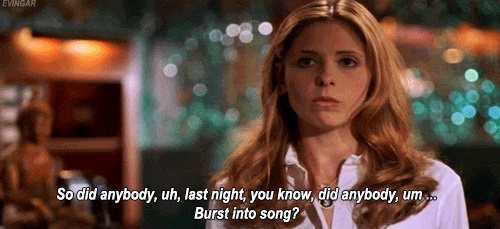
BF: I could never top the “Once More with Feeling” episode of “Buffy.” I love to sing, but I can’t write music, so I don’t think I can make it happen.
For me, the Holy Grail of this show is the comedy episode. Sharon and I have broken down some of Darin Morgan’s “X-Files” episodes (aka The Funny Ones), almost diagramming them to see how he did it. It’s still out there. We haven’t cracked it yet, but I’m convinced it’s out there.
TJ: Which team member is the easiest for you to write? The most difficult? Is there a character that has a special place in your heart? If so, why?
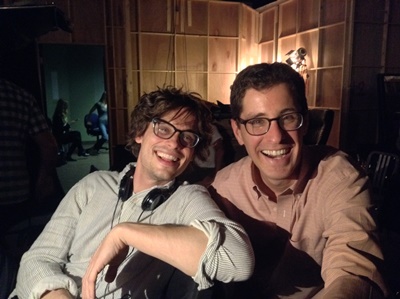
BF: People on the staff and crew sometimes call me “Reid” as a Freudian slip. And Reid’s the easiest for me to write. I’d say he has a special place in my heart, but for a very specific reason. For about four years, I did all the writing on the board as the writers pitched, and when Erica would come into the room to hear an episode, I was usually the one to pitch it. Without realizing it, I would speak really fast (and I talk fast to begin with) and my voice would go into a higher register. I think I pitch the way Reid talks. But I do not have Reid’s intellect. I don’t even have Gubler’s brain. Having worked with him three times now, I’m convinced Gubler’s mind spins three times faster than everyone else’s.
After that, I can say I’ve been able to write something for every character and I’m always overwhelmed that they’re willing to say my stupid lines. When you have Kirsten willing to turn Garcia inside out for “The Black Queen,” that’s pretty special. Same thing in “Forever People,” watching AJ stare down Faran Tahir, playing the ghost of Tivon Askari. When she hissed, “You took my baby” at him, the director, Tawnia McKiernan, and I stared at each other, and we both had goose bumps. That’s not an easy place for an actor to go. But this cast will almost always go on that journey with us. They might have questions or suggestions, but it always makes it better, because they’re professional and they love what they do as much we love writing it.
TJ: How has your approach to writing the show changed over the years, and what’s the most valuable lesson you’ve learned to apply to your writing in your tenure on Criminal Minds?
BF: I think the whole staff is faster. We can tell very quickly what’s going to work as an episode and what won’t.
The most valuable lesson I’ve learned is the value of research. I have to keep reading in order to keep getting inspired. That’s not going to be true with every show I work on. But it’s definitely been true of this one.
TJ: Can you tell us what you do in your down time? What’s your favorite way to unwind? How do you get away from the UnSubs?
BF: When I’m not working, I raise my kids. That’s one good thing about working for Erica Messer; she wants you to leave work at a decent hour and go home to your family.
After that, I’m finally jogging again. I’m addicted to podcasts (Serial, This American Life, You Must Remember This, Savage Love, Death Sex and Money, Reply All, Fresh Air, Radiolab, Hidden Brain, Stuff You Should Know, True Murder, The Flop House, Comedy Bang Bang and WTF).
I’m down on my movies, which is embarrassing because we have a lot of screeners for all the upcoming award ceremonies. I still love a good hidden gem horror movie. “The Babadook” and “It Follows” were both outstanding.
TJ: Do you watch any other shows faithfully? Addicted to any?
BF: Not the way I should be. Going through “Making a Murderer” like the rest of the country. “Last Week Tonight” is blisteringly brilliant.
TJ: What is the absolute best thing about working on Criminal Minds, in your experience?
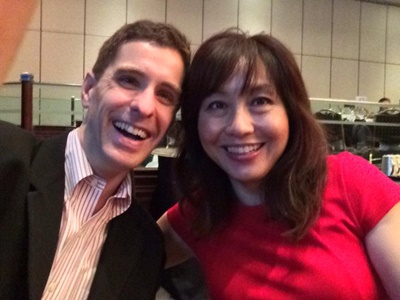
BF: The people. Our subject matter is dark, but we aren’t. We’re eleven years in. You have to love your co-workers to stick with them for this long.
I mentioned above that nobody knows what the future of TV is. “Criminal Minds” feels like the end of an era in a weird way. We’ve bucked the ratings trend — we’re solid while a lot of other shows are hemorrhaging viewers; they re-run the heck out of us when most shows are lucky if they get sold in syndication. We’re not clawing the brains out of our skulls trying to figure out how to get 22 episodes written. I don’t know if I’ll ever have it this good on a TV show ever again.
TJ: If you could do a crossover episode with any other current show (including cable), what would it be, and why?
BF: Can’t think of any. It would be funny to profile the zombies on “The Walking Dead.” “This zombie is driven by a compulsion called coprophagia, also known as a fetish for eating flesh. As does this zombie… and this one… and that one over there… man, there are lot of zombies coming.”
TJ: We remember that you left social media soon after Zugzwang. Do you plan to return anytime soon? You are missed within the fandom and I don’t think ‘snoopysaysbleah’ has been taken!
BF: I got spammed and then spread the spam around. I was so embarrassed I went dark. I’ll come back some day. It’s a lot of work to keep up a social media profile. I’d rather read to my kids (No offense, fans).
TJ: And finally, what can you tell us about The Dirty Dozen? Can you give us one great hint about what’s to come later in the season?
BF: It ain’t over.
Thank You, Breen Frazier!

Pingback: *EXCLUSIVE* Ed Bernero Shares His Take on Criminal Minds' Legacy, and Future!